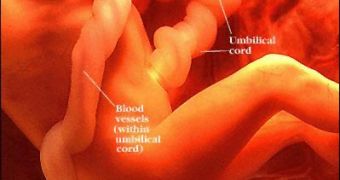After four years of research, researchers have discovered a way to engineer adult stem cells from human umbilical cord blood to synthesize insulin. This could lead to a revolutionary treatment against diabetes.
"This discovery tells us that we have the potential to produce insulin from adult stem cells to help people with diabetes. (This research) is just the first step up the rung of the ladder." said senior author Dr. Randall J. Urban, professor and chair of internal medicine at the University of Texas Medical Branch at Galveston.
"By working with adult stem cells rather than embryonic stem cells, doctors practicing so-called regenerative medicine eventually might be able to extract stem cells from an individual's blood, then grow them in the laboratory to large numbers and tweak them so that they are directed to create a needed organ. In this way physicians might avoid the usual pitfall involved in transplanting cells or organs from other people - organ rejection, which requires organ recipients to take immune-suppressing drugs for the rest of their lives." said lead author Larry Denner, UTMB professor of internal medicine/endocrinology.
"For a person with type 1 diabetes, researchers might engineer these cells to become islets of Langerhans, the cellular masses that produce the hormone insulin, which allows the body to utilize sugar, synthesize proteins and store neutral fats, or lipids." explained Denner.
"This research used human umbilical cord blood because it is an especially rich source of fresh adult stem cells and is easily available from donors undergoing Caesarian section deliveries in UTMB hospitals. However, embryonic stem cell research was absolutely necessary to teach us how to do this." said Denner.
By now, embryonic stem cells have been engineered to form cardiac, neural, blood, lung and liver progenitor cells, replacing damaged tissues.
The researchers made use of a method through which complex signals released by the embryonic mouse pancreas were used to direct adult stem cells to begin differentiating into islet-like cells. The adult stem cells were also found to have a marker, SSEA-4, previously believed to exist only in embryonic cells. Like the embryonic cells, the adult stem cells synthesized both C-peptide, an insulin precursor protein, and insulin itself.
The presence of the C-peptide inside the engineered stem cells showed that at least some of the insulin was synthesized by the engineered cells.

 14 DAY TRIAL //
14 DAY TRIAL //